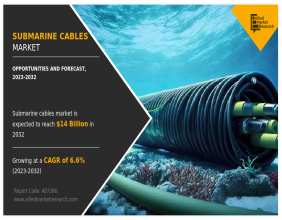Highlights
Social media platforms like TikTok and Instagram are increasingly shaping investment choices, particularly among younger users.
Fraud risks are growing with the rise of financial influencers who may not have formal qualifications.
Regulatory bodies call for stricter monitoring to protect users from scams.
Social media significantly impacts financial decision-making, especially among individuals aged 18-34. Platforms like TikTok, Instagram, Reddit, X, and Facebook are now primary sources of investment information, shifting focus from traditional advisors. This trend extends to global indices, including the FTSE 100, where discussions on these platforms influence investor sentiment and stock movements. Social media's role in financial decisions is becoming a key factor in shaping market dynamics.
The Risks Associated with Social Media Influencers
While social media has opened new avenues for learning about investments, it also exposes users to significant challenges, including fraud. Scammers targeting young individuals are using social media to pose as credible sources of financial advice. Fraudulent influencers, often without any formal credentials, spread misleading content to encourage risky investments. The UK’s Treasury Committee has raised concerns about these practices, highlighting the growing sophistication of fraudsters who exploit gaps in regulations.
Social media's unregulated nature complicates the ability to combat these issues. Fraudsters frequently bypass rules by promoting investments in posts that appear organic, making it hard for users to differentiate between genuine advice and scams. When one fraudulent account is flagged and removed, another can quickly take its place, employing the same deceptive strategies. These activities make it difficult to track down perpetrators, particularly when they operate from overseas locations.
How Social Media Platforms Are Handling the Problem
Despite their advanced technology, social media platforms have yet to implement robust mechanisms to prevent fraudulent financial content. Experts believe that more proactive measures, including enhanced monitoring and verification processes, are necessary to improve user protection. The UK’s Financial Conduct Authority (FCA) has recognized the problem and is working with platforms to create solutions. However, experts agree that platforms can do more to prevent the proliferation of harmful content.
Sarah Coles of Hargreaves Lansdown has stressed the importance of evaluating financial advice on social media critically. She recommends relying on professionals with recognized qualifications rather than individuals with large followings or flashy content that may lack substance. With the rise of unregulated financial advice, misinformation is becoming more prevalent, which can mislead users, particularly those who may not have a deep understanding of financial markets.
The Influence of Social Media Charisma on Investment Trends
Influencers on social media often present themselves as experts in the field of finance, offering innovative ways to achieve high returns with minimal risk. However, many of these claims lack solid evidence and are sometimes designed to manipulate the audience. Some influencers have even been known to promote investments in assets they already hold, encouraging their followers to buy in, thus driving up the prices for their benefit. This form of market manipulation exploits the trust placed in influencers by their followers, who may not be aware of the tactics at play.
A Call for Caution and Better Oversight
As the reach of social media continues to grow, its influence on financial decision-making will likely increase. While platforms provide users with access to an extensive range of information, the quality of that information varies greatly. The financial community and regulatory bodies have emphasized the importance of verifying sources and relying on licensed professionals or qualified individuals for advice. The risk of fraud and misinformation remains high, and as the number of high-risk financial influencers rises, the need for greater vigilance and better regulation becomes increasingly apparent.
Despite the benefits of digital platforms in democratizing access to information, the spread of unqualified financial advice and misleading content poses serious challenges. Moving forward, both users and regulators must be proactive in safeguarding against the potential dangers of this new financial landscape.




